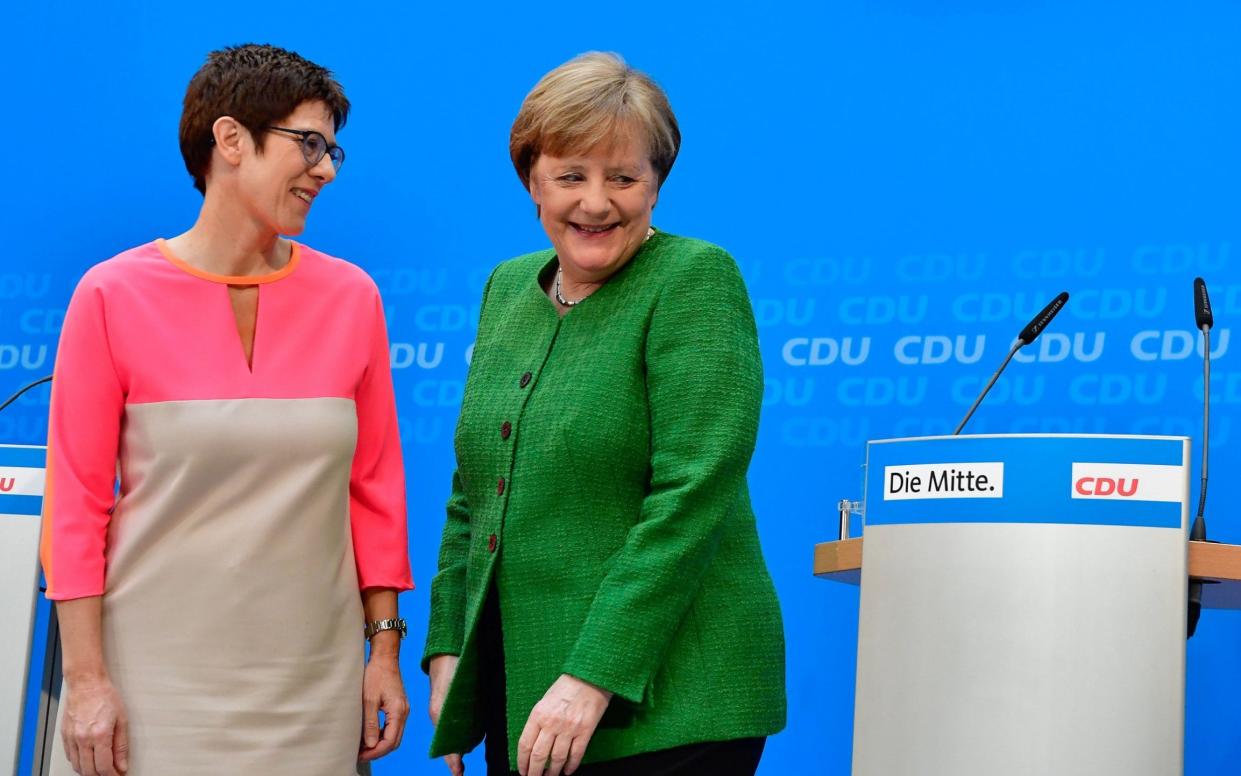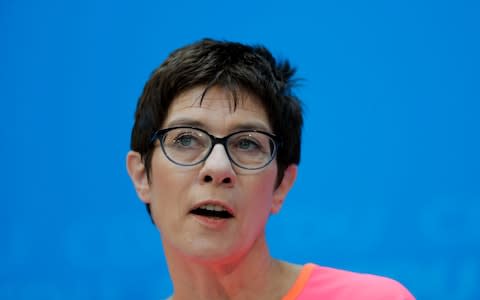Angela Merkel appears to anoint successor with promotion of 'mini-Merkel'

In a move widely seen as anointing her chosen successor, Angela Merkel on Monday promoted one of her key lieutenants to a pivotal role as chairman of her Christian Democrat party (CDU).
The appointment puts Annegret Kramp-Karrenbauer in pole position to take control of the party when Mrs Merkel eventually steps down or is forced from office.
Popularly known as “mini-Merkel”, Ms Kramp-Karrenbauer has long been seen as the chancellor’s preferred successor.
But Monday's move is the first sign that Mrs Merkel is now actively planning for the succession even as rival candidates begin to circle.
The appointment of the loyalist Ms Kramp-Karrenbauer was also a signal that Mrs Merkel does not intend to give any ground to her critics within the party amid rumblings of discontent over the concessions she made to secure a new coalition deal.
“We can rely on each other, even if we each have our own opinions,” Mrs Merkel said as she announced Ms Kramp-Karrenbauer’s appointment.

The decision to make her party chairman has particular resonance because it was from the same office that Mrs Merkel launched her own successful bid to become CDU leader 18 years ago.
Mrs Merkel had to fill the position after the current party chairman, Peter Tauber, announced he was stepping down because of ill health.
But she said it was Ms Kramp-Karrenbauer who came to her and suggested the move. “I was impressed by the idea,” Mrs Merkel added.
Although Ms Kramp-Karrenbauer has a formidable record as an election campaigner, all her experience so far has been in regional politics in her home state of Saarland, where she is currently prime minister.
Mrs Merkel has been thought to want to give her protege a national role for some time in order to increase her profile. But with the CDU reduced to just six ministries in the new coalition deal, her options to bring Ms Kramp-Karrenbauer into the cabinet were limited.
Known as “secretary-general” in the German system, the role of party chairman is more powerful and independent than in UK politics, but does not come with a cabinet seat.
Technically the appointment still has to be confirmed in a vote next week, but for the party to defy Mrs Merkel over the chairmanship would be unheard of.
Accepting the nomination, Ms Kramp-Karrenbauer promised an overhaul of the party’s policies. “The discussion of the programme is open to everyone in the party, from the grassroots to the top,” she said.
Like her mentor, Ms Kramp-Karrenbauer has a reputation as a pragmatist not wedded to any particular ideology, though she has taken a stance against gay marriage.
She has distanced herself from Mrs Merkel’s controverisal refugee policy, but not as stridently as some her rivals — a shrewd move that may have contributed to Monday's appointment.
Ms Kramp-Karrenbauer said she had not taken the decision to accept the role of party chairman easily. It is not without risks for her: it will cut her off from her power base in Saarland and will not give her the ministerial experience running a department would have.

